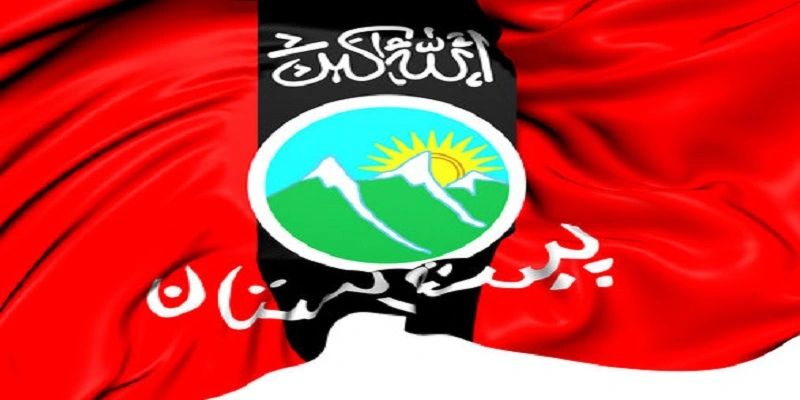Pakhtoonistan: Tracing the Historical Landscape of a Nationalist Movement
Pakhtoonistan constitutes an ethnic minority that is mainly located in the northern-eastern frontier of Pakistan, and it is the largest ethnic group within Afghanistan too. From 1940 onwards, when the Pakistan movement began, it became clear that the British were planning out of the subcontinent by the conclusion of the two 2nd World Wars. Certain Pakhtoons who resided in Afghanistan and the northwestern part of the subcontinent demanded that Pakhtoon's majorities be integrated into Afghanistan or made an independent state under the name of Pakhtoonistan. In addition, following the establishment of Pakistan, Afghanistan supported the matter and those in the top positions of the National Awami Party (NAP) and the current Awami National Party (ANP). The issue was resolved mostly through the enrolment of Pakhtoons into the military and civil bureaucracies.
Pakhtoons are an ethnically distinct group who have resided in Afghanistan and the northwestern portion of the subcontinent for the last three millennia. They are hardworking, strong-built people. They make up over 60% of the people of Afghanistan. Pakhtoonistan problem was first brought out when Durand Line was declared in 1893. It divides the main minorities into two distinct parts.
Furthermore, Pakhtoons could change the name of North Western Frontier Province (NWFP) to Khyber Pakhtunkhwa on April 15, 2010. The creation of NWFP as a distinct province further exacerbated the situation in 1901. Hitler launched the war on the entire of Europe, which led to the degrading of the British Empire, and Pakhtoons were forced to leave India in 1901. Pakhtoons thought that Pakhtoons majority areas should be transferred to Afghanistan or be made into an autonomous state, but in the course of a referendum, Pakhtoons chose Pakistan.
Additionally, Afghanistan supported the Pakhtoonistan issue as it envisioned Pakhtoonistan as its territory to pressure the newly formed state of Pakistan. The country did not just reject the recognition of Pakistan and waged a different kind of conflict against Pakistan. This was accompanied by a head to head responses to Pakistan and Pakhtoons tribespeople because they didn't let the situation get worse and reassured Pakhtoonistan that the government would protect its western border. In Pakistan, the call for Pakhtoonistan was mostly carried by the previous NAP and the current ANP leadership. First, Khan Abdul Ghaffar Khan "Sarhadi Gandhi" was very committed to Pakhtoonistan in the past. Wali Khan and NaseemWali Khan were also negotiating to secure Pakhtoonistan. The reality was that the Pakistani states decided to integrate Pakhtoons in both military and civil services as early as the 1950s. It was initiated and carried on for over a decade. By the end of the 1960s, Pakhtoons held some top positions in the military and civil bureaucracies under Ayub Khan, who was a non-Pashto-spoken Pakhtoons.
Thus, the demand was waning in the late 1960s and was almost extinct by the 1970s. In the meantime, the situation changed. Afghanistan was a war zone, and the Russian invasion and demand for Pakhtoonistan were shattered. However, Pakhtoonistan was finally resolved, and the demand for a name change was not resolved. ANP was able to get votes in favor of changing the name. Finally, on April 15 April 2010, the change of name from NWFP in Khyber Pakhtunkhwa, the Pakhtoonistan issue, was resolved almost indefinitely. The foreign policy of Pakistan could be expected to result in significant repercussions. Afghanistan, USSR, and Iraq were the principal supporters in the Pakhtoonistan issue. Pakistan's relations with these three countries did not have warmth due to their involvement and support for the causes of Pakhtoonistan.
Furthermore, they also have their unfulfilled concern about the issue. Pakistan was forced to pursue close cooperation with the west, led by the USA. In addition, the Pakhtoonistan issue gained certain moral and political aid from the Indian government, which has contributed to further straining through their relationship. To summarize, we could affirm that political pundits primarily conceived the Pakhtoonistan issue to threaten the security of the newly-created state of Pakistan following its consolidation. The issue died naturally over time since there was no support from the public for the issue. Foreign involvement caused difficulties for Pakistan's stability and political structure, but no fruit could be picked. The Pakhtoons remain the most loyal and patriotic people ever and can comprehend these tactics aimed at the instability of Pakistan.

